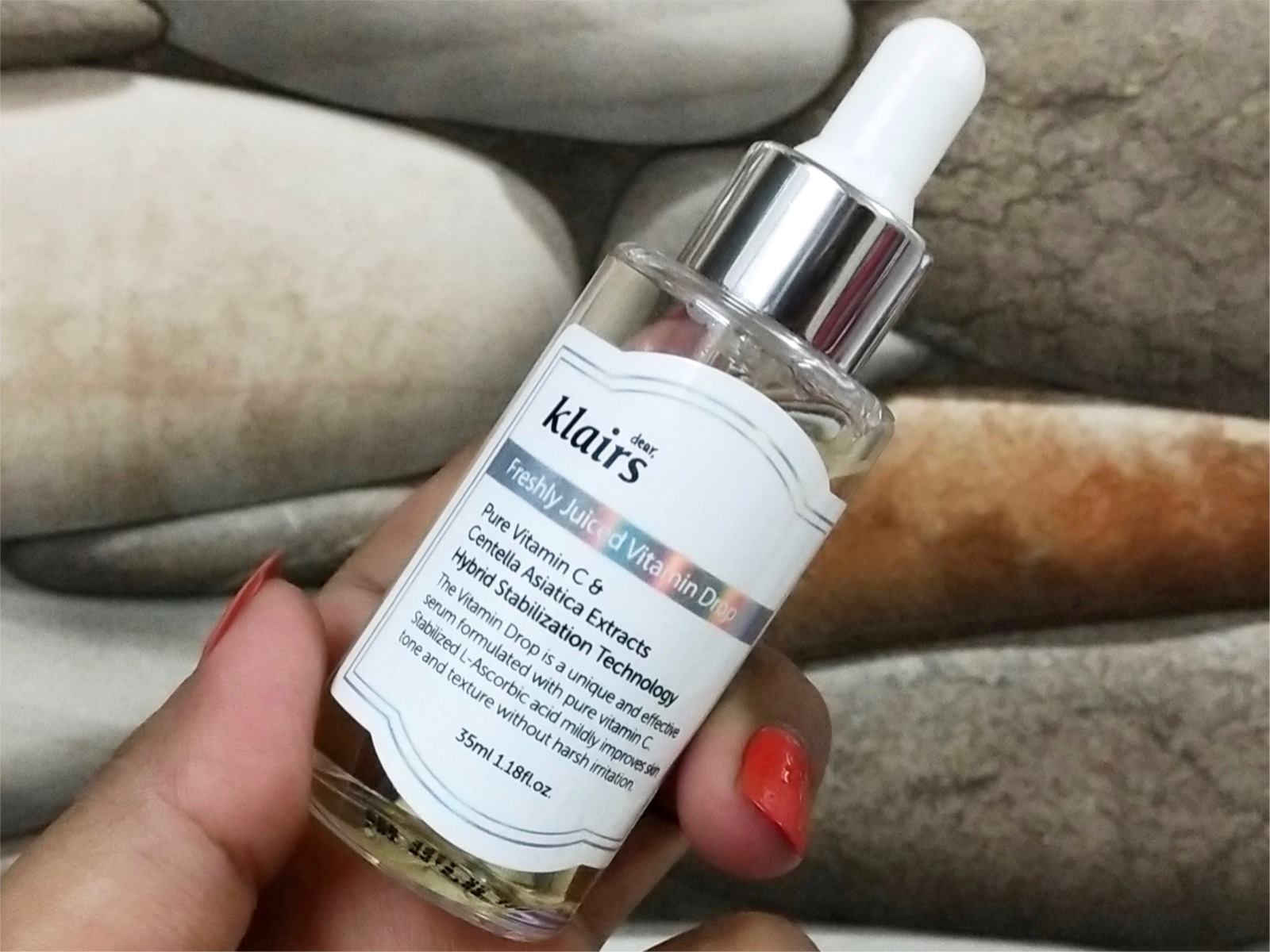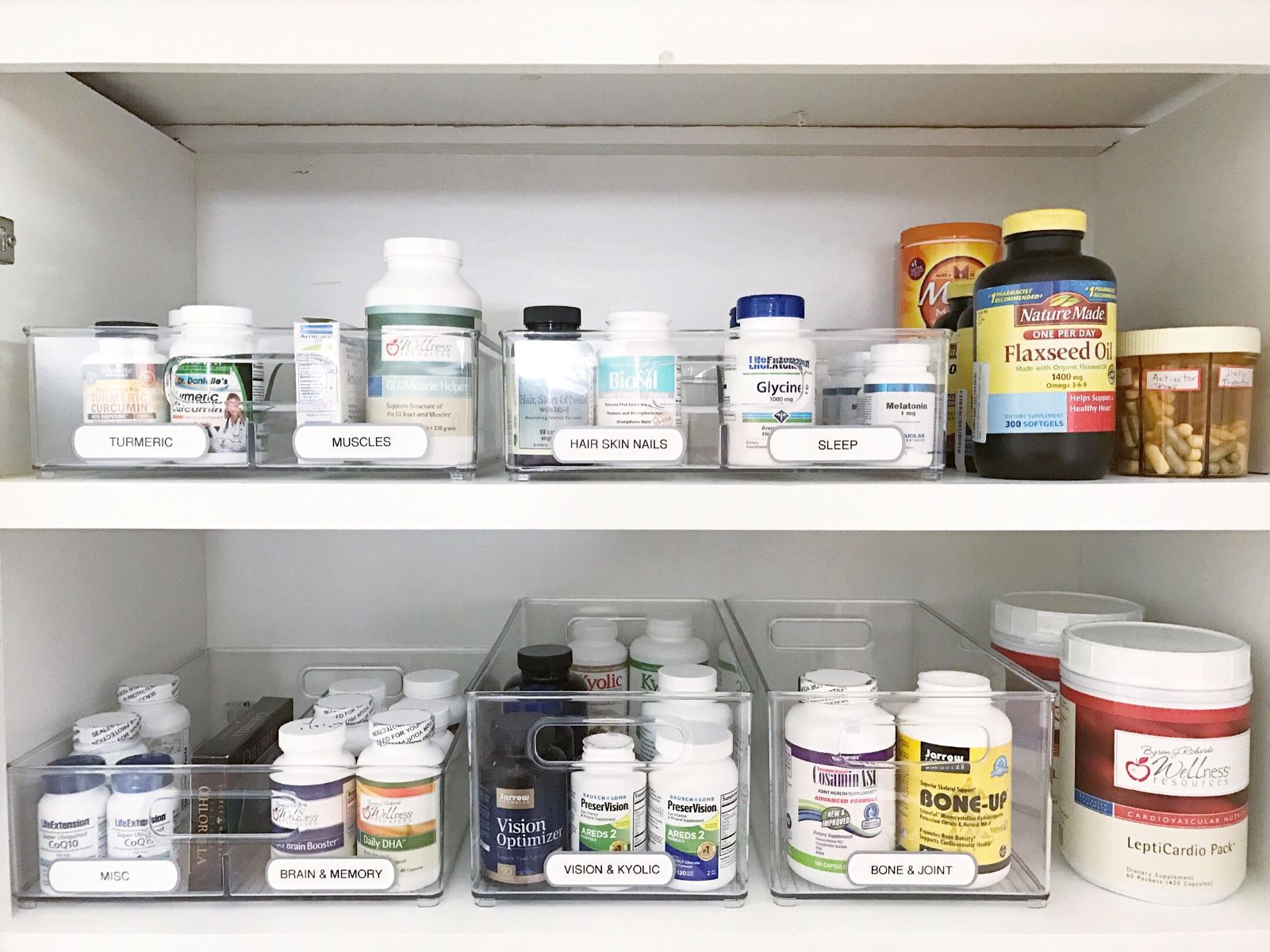

Articles
How To Store Vitamin C Serum Without Fridge
Modified: December 7, 2023
Looking for tips on storing vitamin C serum without a fridge? Check out our informative articles for helpful advice and techniques to keep your serum fresh and effective.
(Many of the links in this article redirect to a specific reviewed product. Your purchase of these products through affiliate links helps to generate commission for Storables.com, at no extra cost. Learn more)
Introduction
Vitamin C serum has gained immense popularity in the skincare community for its numerous benefits. From promoting collagen production to brightening the skin and protecting against free radicals, its potent antioxidant properties make it a must-have in many skincare routines. However, to ensure the effectiveness and longevity of your Vitamin C serum, proper storage is crucial.
In most cases, it is recommended to store Vitamin C serum in the refrigerator to prevent oxidation and extend its shelf life. While a cool environment helps maintain the serum’s potency, it is not always convenient or feasible to keep it in the fridge, especially when traveling or when refrigerator space is limited. Fortunately, there are alternative ways to store Vitamin C serum effectively without relying on a fridge.
In this article, we will explore the importance of storing Vitamin C serum properly, factors to consider when storing it, tips for storing it without a fridge, and alternative methods to extend its shelf life. Whether you’re dealing with a small living space or constantly on the go, understanding how to store your Vitamin C serum correctly will help you maximize its benefits and ensure its efficacy.
Key Takeaways:
- Proper storage of Vitamin C serum is crucial to maintain its potency, prevent oxidation, and avoid skin irritation. Factors like air and light exposure, temperature, and product formulation play a significant role in preserving its effectiveness.
- While refrigeration is ideal, alternative methods like using a cool, dark storage location, airtight containers, and stabilized formulas can help extend the shelf life of Vitamin C serum. Minimizing air exposure, avoiding dilution, and tracking the expiration date are key to maximizing its benefits.
Read more: How To Store Vitamin C Serum
Why is it important to store Vitamin C serum properly?
Proper storage of Vitamin C serum is essential to maintain its potency and ensure that it delivers the maximum benefits to your skin. Here are a few reasons why it is crucial to store Vitamin C serum properly:
- Prevent oxidation: Vitamin C is a highly unstable ingredient that is prone to oxidation when exposed to air, heat, and light. Oxidation reduces the effectiveness of the serum, making it less potent and less able to deliver its desired benefits. Storing the serum properly helps to minimize oxidation and preserve its potency.
- Maintain efficacy: Vitamin C’s effectiveness lies in its ability to act as an antioxidant and stimulate collagen production. However, when the serum is improperly stored, its potency diminishes, and it becomes less effective at combating skin damage caused by free radicals and environmental factors. To ensure the serum remains potent and delivers the desired results, proper storage is essential.
- Extend shelf life: Vitamin C serums typically have a shelf life of around three months after opening. However, improper storage can accelerate the serum’s degradation and shorten its lifespan. By storing the serum properly, you can extend its shelf life and make the most of your investment.
- Avoid skin irritation: If Vitamin C serum is not stored correctly, it can become less stable and more acidic, leading to potential skin irritation. Using a serum that has degraded or become unstable can cause redness, sensitivity, and even breakouts. Proper storage helps maintain the serum’s stability, reducing the risk of skin irritation.
By ensuring that your Vitamin C serum is stored properly, you can maximize its effectiveness, prolong its shelf life, and prevent potential skin irritation. With the right storage techniques, you can enjoy the full benefits of this potent skincare ingredient and achieve healthy, glowing skin.
Factors to consider when storing Vitamin C serum
When it comes to storing Vitamin C serum, there are several important factors to consider. These factors can play a significant role in maintaining the serum’s potency and effectiveness. Here are the key considerations:
- Air and light exposure: Vitamin C is highly sensitive to air and light exposure, which can cause oxidation and degradation of the serum. To protect the serum, store it in a dark and airtight container. Avoid clear glass bottles and opt for dark-colored or opaque packaging that blocks out light.
- Temperature: Temperature fluctuations can negatively impact the stability and potency of Vitamin C serum. Ideally, the serum should be stored in a cool environment to slow down oxidation. While refrigeration is recommended, if that is not possible, room temperature (around 15-25°C or 59-77°F) is acceptable.
- Humidity: Excessive humidity can also degrade the quality of Vitamin C serum. High levels of moisture in the storage area can lead to increased oxidation and reduced efficacy. It is best to store the serum in a dry environment away from humid areas like bathrooms.
- Cross-contamination: Vitamin C serum should be kept away from direct contact with air, water, or other skincare products that may cause contamination or alter its stability. Make sure to close the container tightly after each use and avoid touching the serum directly with your hands to minimize contamination.
- Product formulation: Different Vitamin C serums may have varying formulations, with some being more stable and less prone to oxidation than others. Consider the specific formulation of the serum you are using and follow the manufacturer’s instructions for proper storage.
By taking these factors into account and implementing appropriate storage practices, you can ensure that your Vitamin C serum remains potent and effective, delivering optimal results for your skin. Proper storage will help extend the serum’s shelf life and preserve its quality, allowing you to enjoy the maximum benefits of this powerful skincare ingredient.
Store vitamin C serum in a cool, dark place away from direct sunlight and heat. Keep the bottle tightly closed to prevent air and light exposure, which can degrade the serum.
Tips for storing Vitamin C serum without a fridge
While refrigeration is the ideal method for storing Vitamin C serum, there are alternative ways to store it effectively if a refrigerator is not accessible or convenient. Here are some tips for storing your Vitamin C serum without a fridge:
- Choose a cool and dark storage location: Look for a cool and dark place in your home to store the serum. Ideally, find a spot away from direct sunlight and sources of heat. A drawer or a cupboard can be a suitable option.
- Use a dark-colored or opaque container: If your Vitamin C serum comes in a clear glass bottle, transfer it to a dark-colored or opaque container. This helps to minimize light exposure and protect the serum from degradation.
- Keep the container tightly closed: To prevent air exposure and oxidation, ensure that the container is tightly closed after each use. This will help preserve the potency of the serum for longer periods.
- Avoid extreme temperature changes: Fluctuations in temperature can negatively impact the stability of Vitamin C serum. Avoid storing it in areas where temperatures drastically change, such as near windows or heating/cooling vents.
- Consider using a cool storage method: If you need to store the serum for an extended period, you can try using a cool storage method. This can include placing the serum in a small insulated bag with a cool pack or storing it in a cool, dark box.
- Track the expiration date: It is important to keep track of the expiration date of your Vitamin C serum. Pay attention to the recommended shelf life of the product and replace it accordingly to ensure it remains effective and safe for use.
By following these tips, you can store your Vitamin C serum effectively without a fridge. While it may not be as ideal as refrigeration, these measures will help to maintain the serum’s potency and extend its shelf life, allowing you to continue enjoying its numerous benefits for your skin.
Alternative ways to extend the shelf life of Vitamin C serum
While the shelf life of Vitamin C serum can be extended by refrigeration, there are alternative methods that can help prolong its effectiveness and potency. Here are some alternative ways to extend the shelf life of your Vitamin C serum:
- Choose a stabilized formula: Look for a Vitamin C serum that contains stabilizing ingredients such as vitamin E or ferulic acid. These ingredients can help enhance the stability of Vitamin C and prevent rapid oxidation, thereby extending the shelf life of the serum.
- Store in an airtight container: Transfer your Vitamin C serum into an airtight container if the original packaging is not sufficient. Airtight containers minimize air exposure and oxidation, preserving the potency of the serum for longer periods.
- Minimize direct contact with air: When using Vitamin C serum, avoid leaving the container open for an extended period. Promptly close the container after each use to minimize air exposure and slow down oxidation processes.
- Use a pump or dropper dispenser: Opt for a Vitamin C serum that comes in a pump or dropper dispenser rather than one that requires you to pour the product out. Pump or dropper dispensers help minimize air exposure and reduce the risk of contamination, thus extending the serum’s shelf life.
- Avoid adding water or diluting the serum: To maintain the stability and effectiveness of the serum, it is best to use it as is and avoid diluting it with water or other liquids. Adding water or other substances can accelerate oxidation and reduce the shelf life of the serum.
- Keep away from heat and light: Exposure to heat and light can degrade the quality and potency of Vitamin C serum. Store the serum in a cool and dark place away from direct sunlight, radiators, or other sources of heat to extend its shelf life.
- Consider purchasing smaller sizes: If you don’t use Vitamin C serum regularly or are concerned about its shelf life, consider purchasing smaller-sized bottles. This way, you can finish the serum within the recommended shelf life and minimize waste.
By employing these alternative methods, you can help extend the shelf life of your Vitamin C serum and ensure that it remains potent and effective for a longer period. Maximizing the longevity of the serum will allow you to reap the full benefits and achieve healthy, radiant skin.
Conclusion
Proper storage of Vitamin C serum is essential to maintain its potency and effectiveness. While refrigeration is the recommended method, there are alternative ways to store Vitamin C serum without a fridge. By considering factors such as air and light exposure, temperature, humidity, cross-contamination, and product formulation, you can ensure that your serum remains stable and effective.
Storing Vitamin C serum in a cool, dark place, using airtight containers, and minimizing air exposure can help prolong its shelf life. Additionally, opting for stabilized formulas, using pump or dropper dispensers, and avoiding dilution with water can help maintain the serum’s potency. Keeping the serum away from heat and light, and considering purchasing smaller sizes if needed, are also effective strategies for extending its shelf life.
Remember to check the expiration date and replace your Vitamin C serum accordingly. Using an expired product can lead to reduced efficacy and potential skin irritation. By taking these measures and being mindful of proper storage techniques, you can get the most out of your Vitamin C serum and achieve healthy, glowing skin.
Ultimately, proper storage of Vitamin C serum is crucial to preserve its potency and ensure you receive the maximum benefits. Whether you have access to a fridge or not, these tips and alternative methods will help you maintain the effectiveness of your Vitamin C serum, allowing you to enjoy the radiant and youthful-looking skin it can provide.
Frequently Asked Questions about How To Store Vitamin C Serum Without Fridge
Was this page helpful?
At Storables.com, we guarantee accurate and reliable information. Our content, validated by Expert Board Contributors, is crafted following stringent Editorial Policies. We're committed to providing you with well-researched, expert-backed insights for all your informational needs.















0 thoughts on “How To Store Vitamin C Serum Without Fridge”